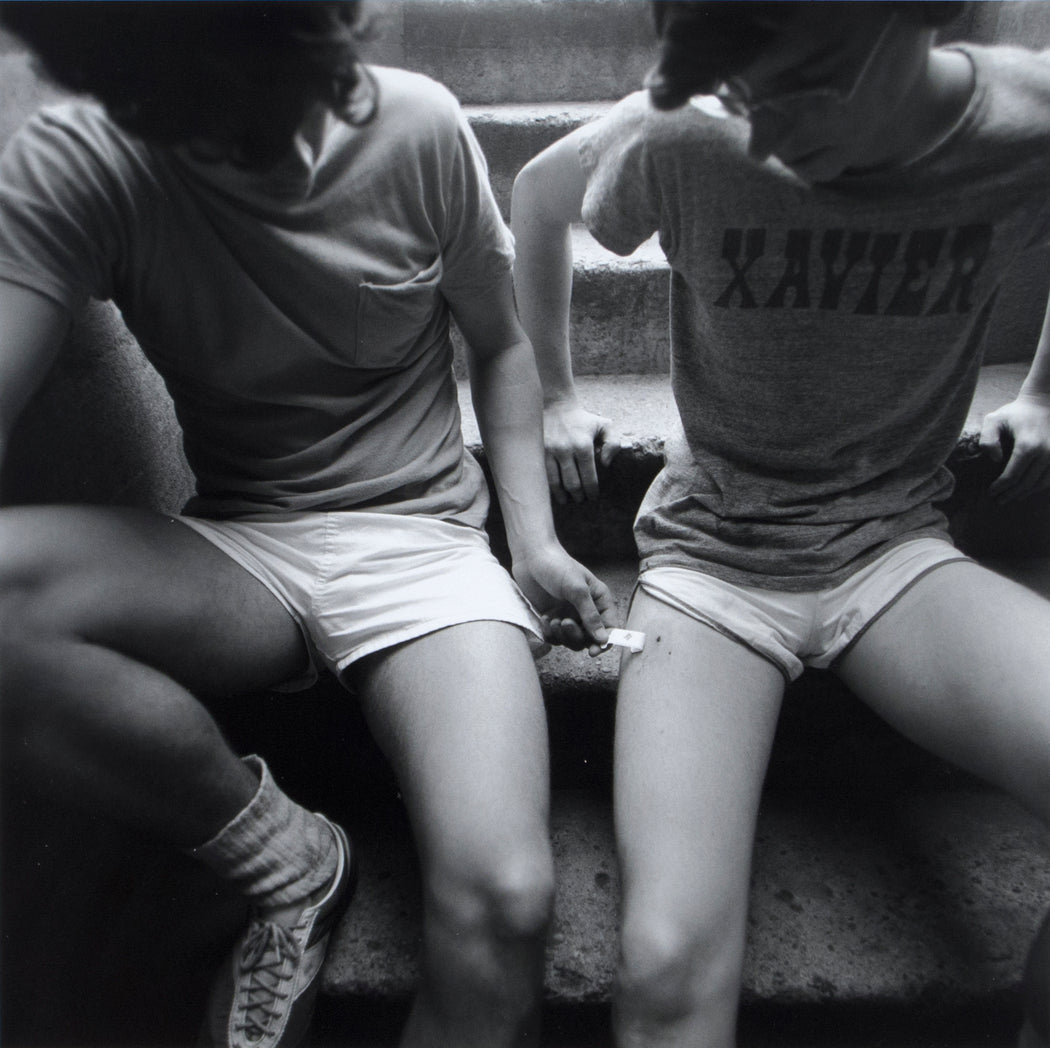
Arthur Tress
Teenage Runners by Arthur Tress
 Toronto, ON)
Toronto, ON)
Learn about our Shipping & Returns policy.
Have a question? Read our FAQ.
- Artwork Info
- About the Artist
-
1976
Gelatin Silver Print
Signed, titled, dated, and editioned, in ink, au recto
Printed circa 2005
Edition of 50 (#21/50)
Unframed -
(b. 1940, New York City, USA)
Born in Brooklyn, New York, on November 24, 1940, Arthur Tress began taking photographs as a teenager in Coney Island, where he spent hours exploring the decaying amusement parks. Later, during five years of world travel, mainly in Asia and Africa, he developed an interest in ethnographical photography that led to his first professional assignment as a U.S. government photographer recording endangered folk cultures of Appalachia.
Seeing the destructive results of corporate resource extraction, Tress began to use his camera to raise environmental awareness about the economic and human costs of pollution. Focusing on New York City, he began to photograph the neglected fringes of the urban waterfront with a straight documentary approach. This gradually evolved into a more personal mode of “magic realism” combining improvised elements of actual life with stage fantasy that became his hallmark style of directorial fabrication. In the late 1960s Tress was inspired to do a series based upon children’s dreams that combined his interests in ritual ceremony, Jungian archetypes, and social allegory. Later bodies of work dealing with the hidden dramas of adult relationships and the reenactments of male homosexual desire evolved from this primarily theatrical approach.
Beginning in the early 1980s, Tress began shooting in color, creating room-sized painted sculptural installations out of found medical equipment in an abandoned hospital on New York’s Welfare Island. This led to a smaller scale exploration of narrative still life within a children’s toy theater and a portable nineteenth-century aquarium.
Around 2002, Tress returned to gelatin silver, exploring more formalist themes in the style of mid- century modernism, often combining a spontaneous shooting style with a constructivist’s sense of architectural composition and abstract shape. In addition to images of California skateboard parks, his recent work includes the round images of the series Planets and the diamond-shaped images of Pointers.

